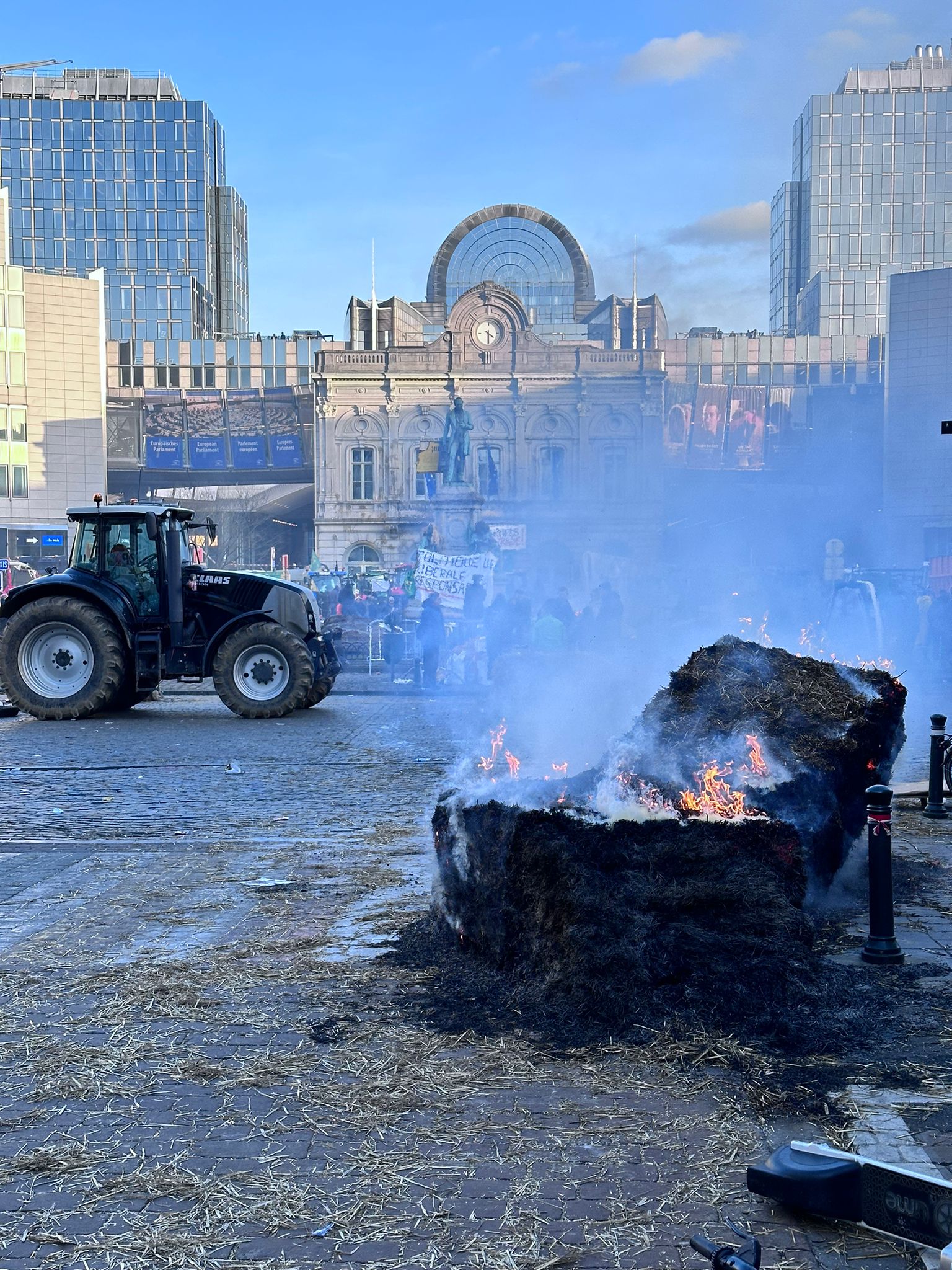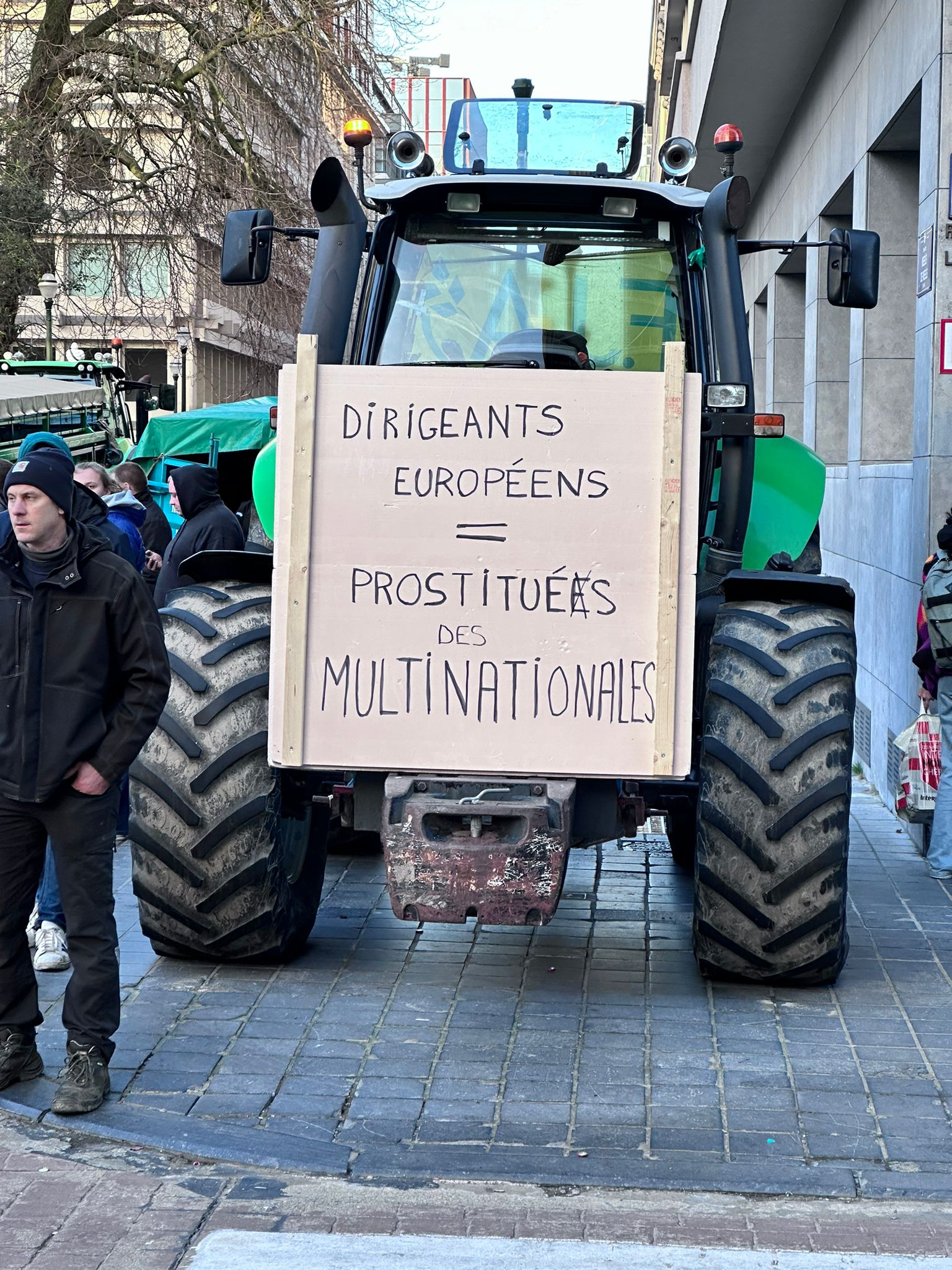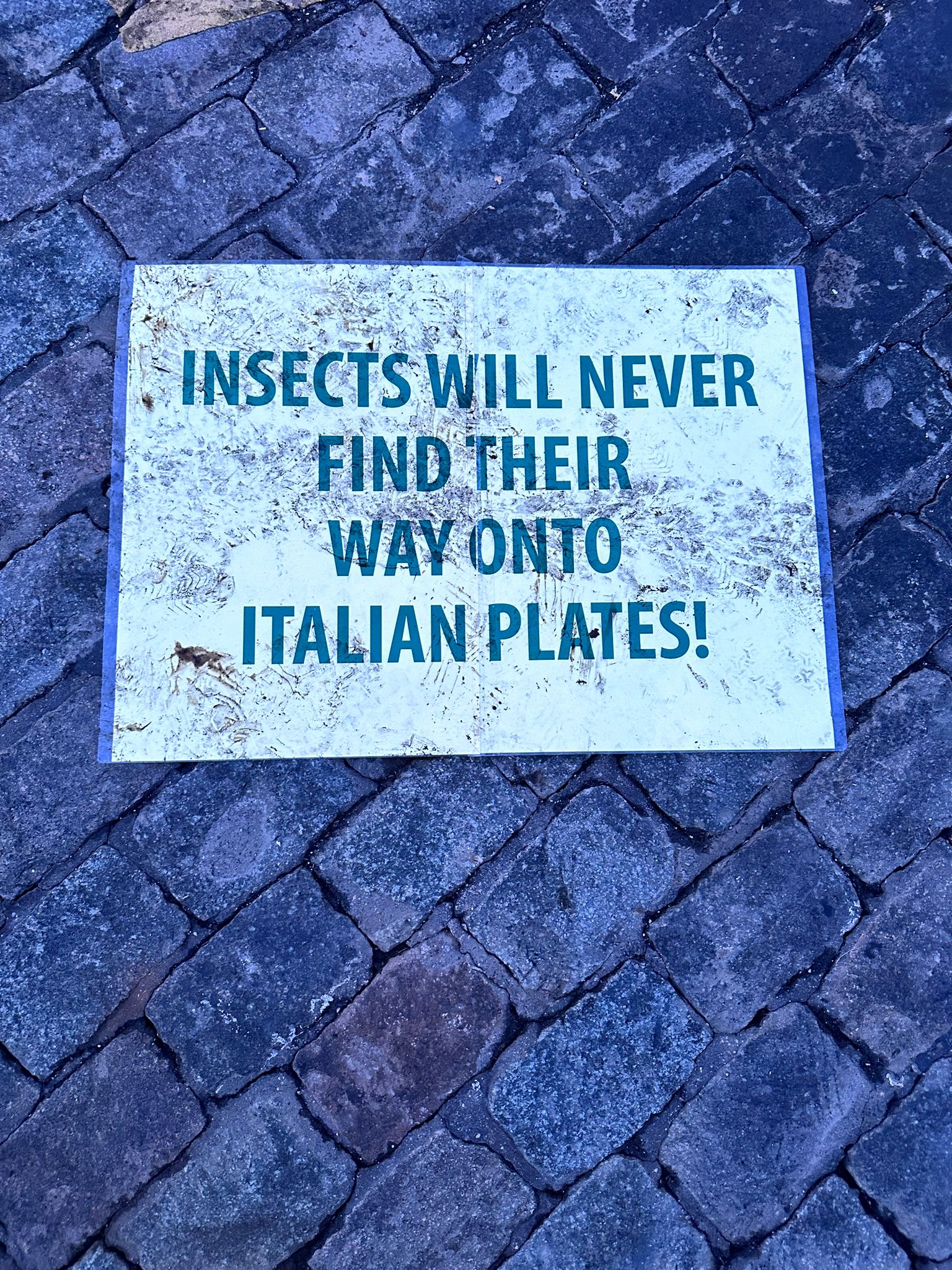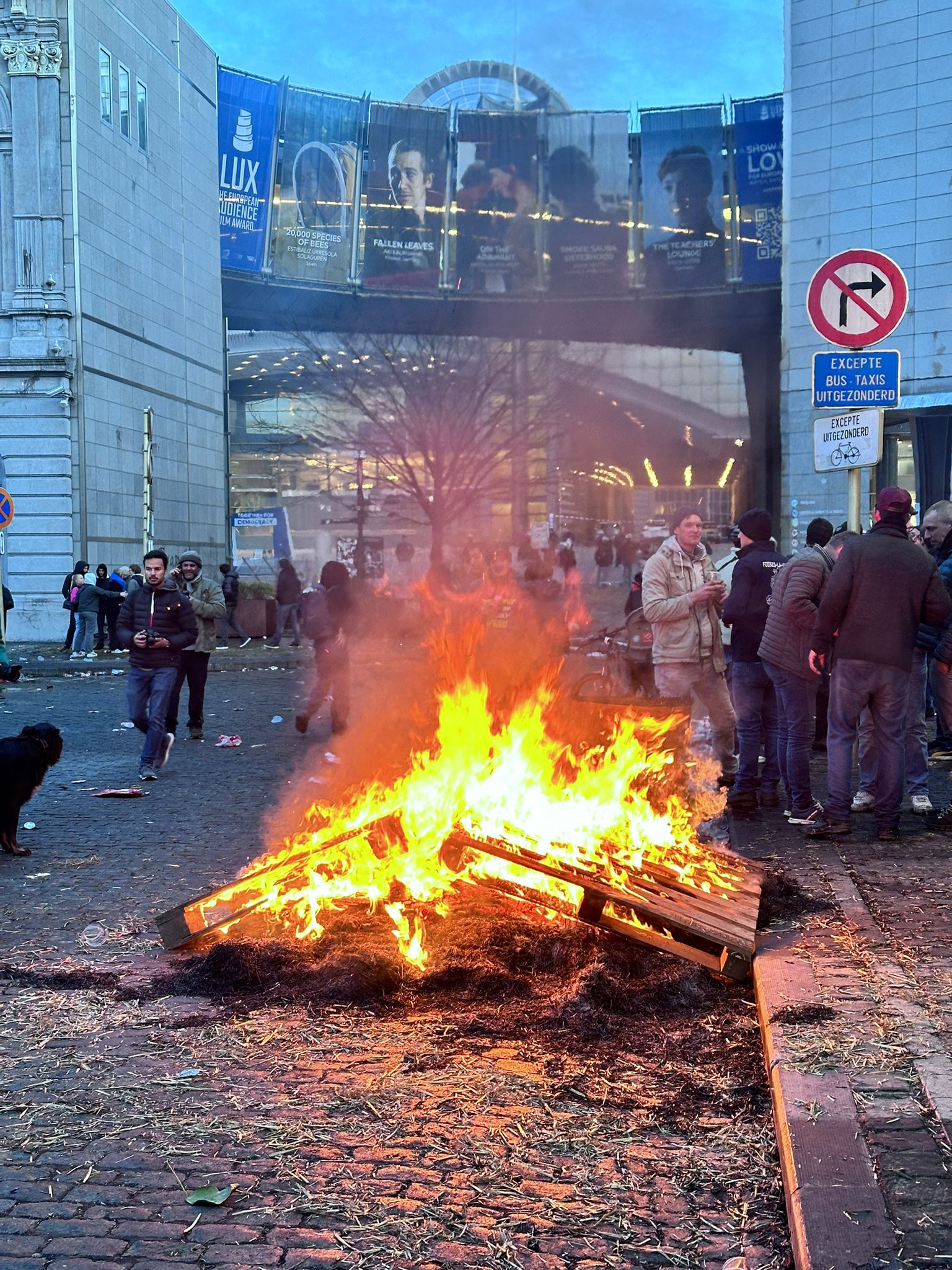International
European farmers block Brussels and the European Parliament. The city is under siege

“Nothing is moving; we will block the country.” Farmers are preparing to block the entrances to Brussels and send the city where the European institutions are based into crisis. After meeting with Charles Michel, president of the Council of Europe, the FJA (Fédération des Jeunes Agriculteurs), the organization that coordinates the farmers’ protests, does not believe it is being heard. From the European Parliament, where the action has been ongoing since this morning, tractors are moving to block the entrances to the capital.
Fugea and the Fédération des Jeunes Agriculteurs have met with Charles Michel, which does not mean an end to the movement and roadblocks. Occupations of warehouses and roads like Hal will continue. At 3:45 p.m., an FJA representative announced at the Place du Luxembourg microphone that “since nothing is moving, we will blockade the country! Tractors then set out to block the entrances to the capital.
Place Luxembourg, seat of the European Parliament, was blocked, with firecrackers and tear gas being thrown between police and protesters
The clashes went on throughout the afternoon, with farmers electing this location as their headquarters:
The situation is extremely tense, and the farmers, as initially written, seem determined to blockade the entire city. The protesters are mainly Belgians, but there are also French and Italians.

What are the farmers demanding? Specifically, the farmers reject free trade agreements such as Mercosur, demand administrative simplification, denounce “incomprehensible” European standards, and demand a “fair” price for products sold to agribusiness.

The extraordinary European summit, bringing together EU heads of state and government, is expected to discuss this anger in the agricultural sector, although the topic is not officially on the agenda. In addition to Belgium, other European countries such as France, Portugal, Spain, and Germany have also seen significant mobilization by farmers in recent days. However, ten years of bad decisions cannot be changed in one meeting.

Meanwhile, the protests are also spreading to Portugal, and are now very intense in : Spain, France. Germany, Belgium and the Netherlands. Half of Europe is making a revolution against policies of the Union that it sees as enemies






